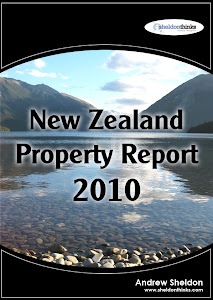Its true that in the last few months there was little good news. But then those few months follow over a decade of economic prosperity. There is no question that there was significant expansion in money supply in that period that will result in higher cost-price inflation as a consequence of asset price deflation. Falling asset prices and rising interest rates will cause the liquidation of those marginal home loans that should not have been financed. That will be part of the adjustment process. Economic activity will slow in the USA, and I have no question it will cause a recession. The next question is how long? This is not the 1920s. There is not the same level of over-capacity as there was at that time, nor is that likely to occur given the cost-price advantages of developing countries have yet to work there was fully through the market. We thus can expect any high-cost manufacturing capacity to close if there is any surplus, first in the EU because of its high EUR currency, followed by the USD. Its paradoxical but the ills of the US are what is going to save it – a low USD. It will take time, just as it will take time for the US credit bubble to deflate. The bigger issue in the short term will be the crisis of confidence.
There does remain a threat posed to the market, and that’s the existence of the derivatives market. The derivatives market is a instrument for spreading risk, but with little regulation, it is also an instrument for concentrating risk. Those hedging instruments that offer security of revenues can only be achieved if the counter-party is covering the ‘unlimited’ downside risk. These counter-parties have offsetting exposures which are supposed to protect them, but not all underwriters are the same. Some have strict operating procedures, others do not. Some take higher risk bets, others are more conservative.
We cannot forget the other engine of growth in this market, the plummeting costs of offshore outsourcing. Would you outsource if there is excess labour caused by slower economic activity? Certainly because you are competing with others facing the same cost pressures. Wages have always been rather sticky on the downside. The issue is whether this will prove to be the case in a global economy that is less rigid. Certainly inflation provides the capacity for ‘stealing’ purchasing power from wage earners. The unions have been broken globally so I don’t see tremendous wage growth. The tight labour markets worldwide is also reason for confidence. Wages are of course just another cost for services rendered which are driven by inflation, but this time I don’t see a lot of upside. The West has had the benefit of computers for decades now, however outsourcing of services to Asia and elsewhere will add another ‘productivity’ dynamic to the equation. These positives will take time to flow through to the market but they are all part of what makes this a super-cycle. It was only in 2007 that ASEAN countries have removed tariffs on 80% of their exports. That will significantly enhance the competitive dynamism in the East Asian market. A great many developing countries are benefiting from higher commodity prices. In some cases not all the benefits are following through to the people (eg. Nigeria), but in places like Ghana and Botswana, the benefits are readily apparent. Some citizens of these countries are gaining an education in the Philippines or India rather than Australia & Canada, thus adding a new dynamic to globalisation that will help fuel trade between these regions.
These trends will take time to feed through to the market so you can expect an economic slowdown, but unless there are significant signs of a deterioration in credit quality or failed derivatives brokers or investment banks, I think there is little likelihood of more severe pain. But what of the inflation that we talked about. Yes that is an issue for a deterioration in personal worth. A lot of people’s standards of living will fall back to where they were 4 years ago. Two-thirds will be stolen by falling asset prices and debt liquidation, the other third will be stolen by inflation. A great would have already been stolen by the inflation you were not even aware of. Just look at what is excluded from the CPI and you will get my point. But the other point is that we are looking at recession – and likely a short term one – because of this ‘technological & services revolution’. The other reason is that the increases in wealth have to date been fairly widespread. It will be the inflationary step which will concentrate wealth in the hands of the few.
-----------------------------------------Andrew Sheldon www.sheldonthinks.com









No comments:
Post a Comment